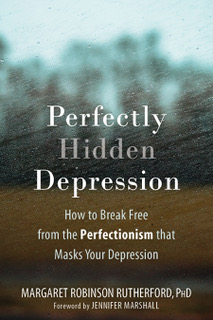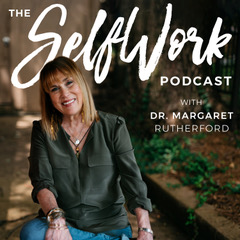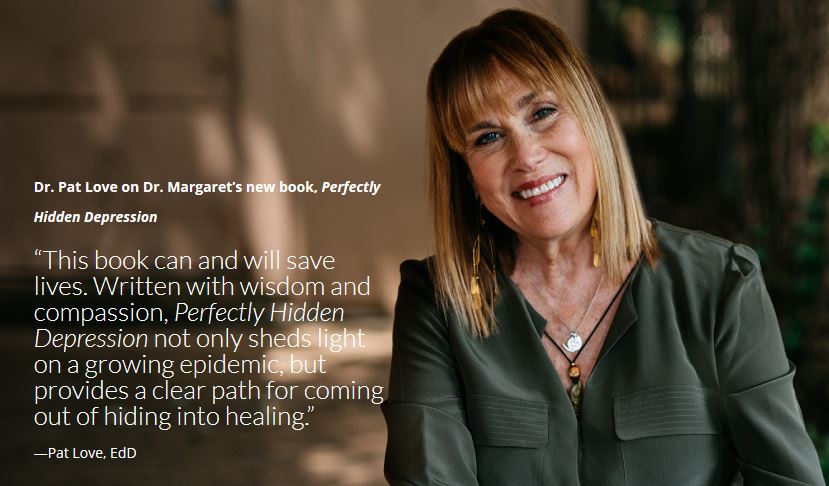 We’ve known Dr. Margaret Rutherford, a local psychologist who’s been in private practice for 25 years, since about 2014 and were thrilled to hear she’d published a new book, Perfectly Hidden Depression.
We’ve known Dr. Margaret Rutherford, a local psychologist who’s been in private practice for 25 years, since about 2014 and were thrilled to hear she’d published a new book, Perfectly Hidden Depression.
Dr. Margaret coined the phrase “Perfectly Hidden Depression” after a post she wrote for the Huffington Post went viral. It resonated with many, especially women who try too often to be “perfect.” Perfect partner, perfect mom, perfect business owner, perfect employee.
In this Q&A, find out more about the message behind her book and how it can help you, as the book notes, “break free from the perfectionism that masks your depression.”
If you’d also like to listen to Dr. Margaret chat about this concept, Lewis Howe interviewed her on his podcast, The School of Greatness.
Also, Dr. Margaret has her own podcast! On SelfWork, she talks about all kinds of interesting mental health issues.
On to the interview:
Q: Dr. Margaret, why did you title your book Perfectly Hidden Depression?
Because perfectionism fueled by intense self-criticism and shame cloaks a depression that’s way underneath the “surface” or our consciousness.
A person who identifies with PHD is very invested in creating a perfect-looking life and can be quite successful at doing so. It’s not that others with more classic depression don’t get up and put a smile on their face. But they reveal their depression. If you’re perfectly hiding, you don’t want anyone to know that you struggle.
Q: What has the response been like so far?
From the very beginning of my writing about PHD, I’ve regularly received emails from people around the world, saying “This is me” or “I’ve never seen anyone writing about this,” or, “You’re reading my mind.” Those very emails have kept my passion going in what’s been a difficult process of writing and publishing a book.
So far (the book’s been out three months) I’ve done some great podcast interviews and those requests are pouring in. The actual sales are slow but sure, as I thought they’d be. I’m an unknown author from Fayetteville, Arkansas. I’m not a professor nor have the backing of a university. So I always imagined the book would be best advertised by word of mouth.
Q: You have a checklist of questions to consider when determining whether you’re depressed or not. What is the most pivotal question?
The questionnaire is geared toward helping someone identify where on the spectrum of perfectly hidden depression they might fall. Remember, PHD is a syndrome, or a group of behaviors and beliefs that you’ll find together. Like salt and pepper. When you see one, you often see the other.
The pressure of shame-driven perfectionism is the cornerstone, but the other traits of PHD, like not being able to express painful feelings or having a need for control, are also important.
Q: You have a section in your book for teenagers. Why did you want to add that?
Yes. I of course have no way of knowing who will actually read the book. I have a warning to teenagers. First, highly recommending that they talk to adults and reveal their struggle. But two, to realize that if their parents or family or culture is playing a part in creating the pressure they feel, that they might have to seek some other adult to help. An aunt, a teacher, a friend’s parent.
Q: What’s next here in NWA? Where can local people see you in person?
I am planning to do a workshop in the area sometime later this year. You can join my Facebook professional page at or join my Facebook closed group to find out the details! I still see lots of patients every week but will take off time to speak!
Q: What about upcoming online appearances?
Most of the interviews I’m doing are recorded for future broadcast. But I do a monthly Facebook Live for The Mighty the third Wednesday of the month – and in my closed group, I’ll host Facebook Lives as well. I’m headed out to LA next month to be on The Mental Illness Happy Hour and that’ll be fun.
I’ve been asked to keynote a seminar in April and am working out the details for a talk in Little Rock April 16th! I’d love to do more, so keep me in mind!
Keep up with Dr. Margaret on Facebook, Instagram, Twitter, LinkedIn or on her main website. Email Dr. Margaret if you’d like to ask a question.



